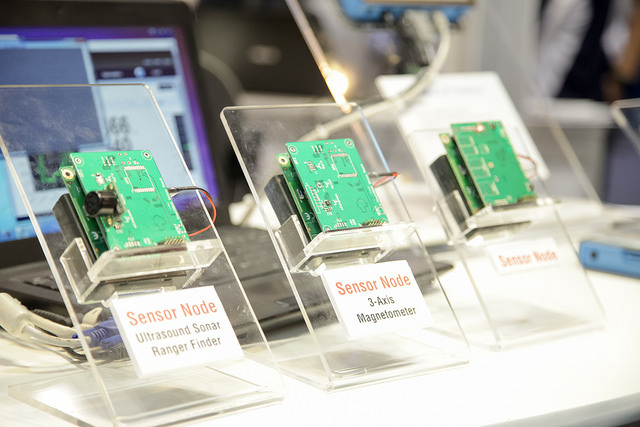 EMERGING TECH
EMERGING TECH
 EMERGING TECH
EMERGING TECH
 EMERGING TECH
EMERGING TECH
Advanced Micro Devices Inc. isn’t the only player trying to loosen Intel Corp.’s grip on the multibillion-dollar personal computer processor market.
Arm Holdings PLC, whose chip designs power the majority of the world’s handsets and connected devices, today previewed a set of upcoming products that take direct aim at PCs. The move marks the first time in the company’s existence that it has publicly released a development roadmap detailing future offerings.
Arm’s plan is to improve the performance of its processors by at least 15 percent every year through 2020. The company marked the first milestone in the roadmap with the introduction earlier this year of the Cortex-A76, its latest-generation architecture.
Arm claims the design provides 35 percent better performance than its predecessor. According to the company, manufacturing partners will implement the design in chips with 7- and 10-nanometer transistors that it expects to provide clock speeds of about 3 gigahertz. That puts Arm on a much more level playing field with Intel than a few years ago.
The chip designer hopes to compete in the midrange of the desktop processor segment, which is dominated by Intel’s Core i5 series. In a slide released as part of the roadmap, Arm compared its silicon with the Core i5-7300 model from the family. The latter processor has a base clock speed of 2.6Ghz and can reach 3.5Ghz using Intel’s Turbo Boost technology, while Arm expects that Cortex-A76 chips could achieve clock rates as high as 3.3GHz.
Where the company’s designs set themselves apart is power efficiency. Arm said the Cortex-A76 has thermal design power of less than five watts, while the Core i5-7300 stands at 15 watts when Turbo Boost is enabled. That means some future computers with Cortex-A76 chips might have to be charged only once a day.
The company pledged to continue making enhancements with future processors. According to the company, the planned successor to the A-76 is codenamed “Deimos” and will be specifically optimized for 7-nanometer fabrication processes. It’s expected to provide a more than 15 percent increase in computing power.
Arm will start shipping Deimos to partners later this year and plans to release the subsequent iteration, codenamed “Hercules,” in 2019. The chip will support not only 7-nanometer but also 5-nanometer processes. Arm promised to provide yet more computing power increases with Hercules, as well a more than 10 percent boost in power efficiency and density on top of the inherent efficiency gains that should be achievable with 5-nanometer processes.
“Arm’s plans to go after the PC space is more credible than ever,” said Patrick Moorhead, president and principal analyst at Moor Insights & Strategy. “Buyers are expecting improved battery life at specific performance levels and I believe that Arm’s road map demonstrates that. Of course, Intel and AMD will be innovating as well.”
Indeed, Intel is working on new, denser chips as well. The company last month pledged to launch 10-nanometer desktop processors in time for 2019 holiday season, but some on Wall Street have expressed doubts about the roadmap because of previous delays.
THANK YOU